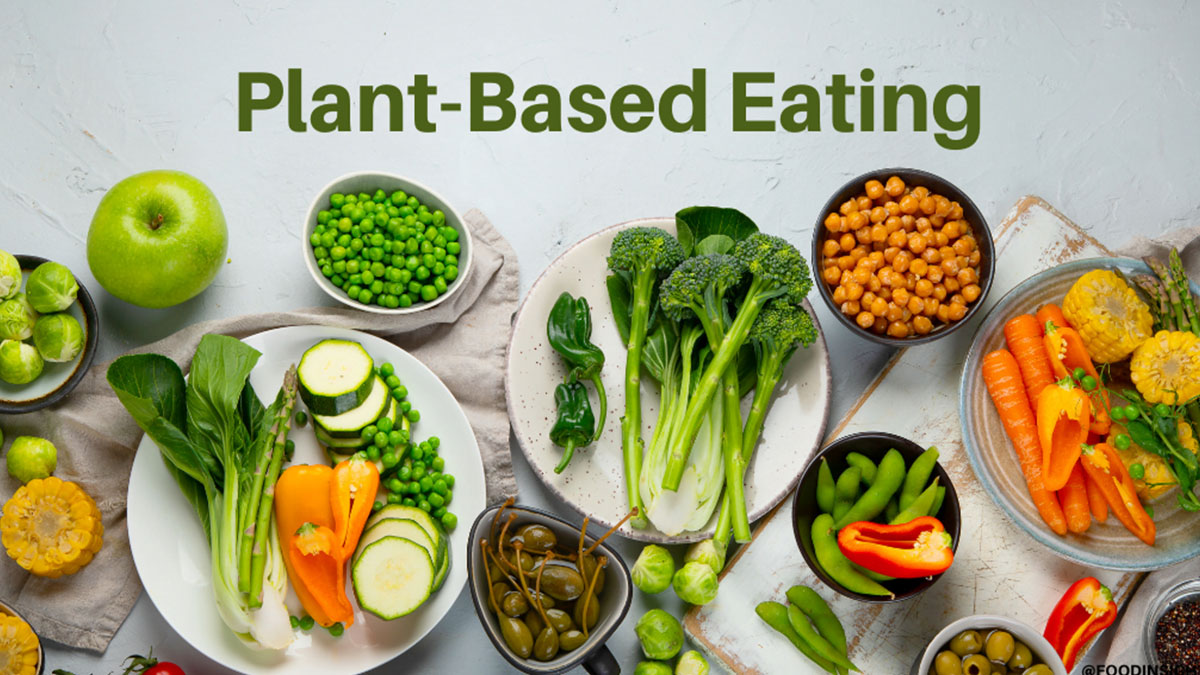
Plant-based diets have gained significant popularity in recent years, celebrated for their potential health benefits and positive environmental impact. Adopting a plant-based diet involves focusing on whole, plant-derived foods while minimizing or eliminating animal products. This article explores the benefits of plant-based diets, provides practical tips for transitioning, and offers delicious recipe ideas to help you embrace this lifestyle.
1. Understanding Plant-Based Diets
**1.1. What is a Plant-Based Diet?
- Definition: A plant-based diet emphasizes the consumption of fruits, vegetables, whole grains, legumes, nuts, and seeds while minimizing or avoiding animal products such as meat, dairy, and eggs.
- Variations: Plant-based diets can range from vegetarian (avoiding meat but including dairy and eggs) to vegan (eliminating all animal products).
**1.2. Types of Plant-Based Diets
- Vegetarian: Includes plant-based foods and may include dairy products and eggs.
- Vegan: Excludes all animal products, focusing solely on plant-based foods.
- Flexitarian: Primarily plant-based with occasional consumption of animal products.
2. Health Benefits of Plant-Based Diets
**2.1. Nutritional Advantages
- Rich in Nutrients: Plant-based diets are rich in essential vitamins, minerals, fiber, and antioxidants.
- Heart Health: High intake of fruits, vegetables, and whole grains is associated with reduced risk of heart disease and high blood pressure.
**2.2. Weight Management
- Lower Caloric Density: Plant-based foods are often lower in calories and fat, aiding in weight management and reducing the risk of obesity.
- Satiety: High fiber content helps with satiety, reducing overall calorie intake.
**2.3. Digestive Health
- Improved Digestion: Fiber from plant foods promotes healthy digestion and regular bowel movements.
- Gut Health: A diverse range of plant foods supports a healthy gut microbiome.
**2.4. Diabetes and Blood Sugar Control
- Lower Blood Sugar Levels: Plant-based diets can improve blood sugar control and reduce the risk of type 2 diabetes.
- Glycemic Index: Emphasis on whole grains and legumes helps maintain stable blood sugar levels.
**2.5. Environmental Impact
- Sustainability: Plant-based diets have a lower environmental footprint, reducing greenhouse gas emissions and conserving water and land resources.
- Biodiversity: Promotes the conservation of natural habitats and biodiversity by reducing the demand for animal farming.
3. Transitioning to a Plant-Based Diet
**3.1. Gradual Changes
- Start Small: Begin by incorporating more plant-based meals into your diet and gradually reducing animal products.
- Experiment: Try new plant-based foods and recipes to find what you enjoy.
**3.2. Nutritional Balance
- Essential Nutrients: Ensure adequate intake of protein, iron, calcium, vitamin B12, and omega-3 fatty acids. Consider fortified foods or supplements if needed.
- Diverse Foods: Include a variety of fruits, vegetables, legumes, nuts, and seeds to meet nutritional needs.
**3.3. Meal Planning
- Plan Ahead: Plan meals and snacks to ensure a balanced intake of nutrients and to avoid convenience foods that may be low in nutritional value.
- Batch Cooking: Prepare and store plant-based meals in advance for convenience and to maintain dietary consistency.
4. Delicious Plant-Based Recipes
**4.1. Quinoa and Black Bean Salad
- Ingredients: Quinoa, black beans, cherry tomatoes, corn, red bell pepper, cilantro, lime juice, olive oil.
- Instructions: Cook quinoa according to package instructions. Combine cooked quinoa with black beans, chopped vegetables, and cilantro. Toss with lime juice and olive oil. Chill before serving.
- Benefits: A nutrient-dense salad high in protein, fiber, and essential vitamins.
**4.2. Sweet Potato and Chickpea Curry
- Ingredients: Sweet potatoes, chickpeas, coconut milk, curry powder, spinach, garlic, ginger.
- Instructions: Sauté garlic and ginger in a pan, add curry powder, and cook until fragrant. Add sweet potatoes and coconut milk, simmer until tender. Stir in chickpeas and spinach until heated through.
- Benefits: A hearty, flavorful dish packed with protein, fiber, and healthy fats.
**4.3. Berry and Spinach Smoothie
- Ingredients: Fresh spinach, mixed berries, banana, almond milk, chia seeds.
- Instructions: Blend all ingredients until smooth. Adjust sweetness with additional fruit or a splash of maple syrup if desired.
- Benefits: A refreshing smoothie rich in antioxidants, vitamins, and healthy fats.
**4.4. Stuffed Bell Peppers
- Ingredients: Bell peppers, brown rice, black beans, corn, diced tomatoes, avocado, cilantro.
- Instructions: Cook brown rice and mix with black beans, corn, and diced tomatoes. Stuff bell peppers with the mixture and bake until peppers are tender. Top with avocado and cilantro.
- Benefits: A nutritious, customizable dish that provides a balance of protein, fiber, and vitamins.
5. Maintaining a Plant-Based Lifestyle
**5.1. Stay Informed
- Education: Continue learning about plant-based nutrition and new recipes to keep your diet varied and enjoyable.
- Community: Join plant-based groups or forums for support, inspiration, and recipe ideas.
**5.2. Listen to Your Body
- Adjustments: Pay attention to how your body responds to dietary changes and make adjustments as needed to meet your individual health needs.
- Professional Guidance: Consult with a registered dietitian or nutritionist to ensure your plant-based diet meets all nutritional requirements.
Conclusion
Adopting a plant-based diet can offer numerous health benefits, from improved cardiovascular health to enhanced digestion and weight management. By focusing on a diverse range of plant-derived foods and incorporating delicious recipes, you can enjoy a fulfilling and nutritious diet while supporting environmental sustainability. Embrace the plant-based lifestyle with these tips and recipes, and discover the positive impact it can have on your health and well-being.
